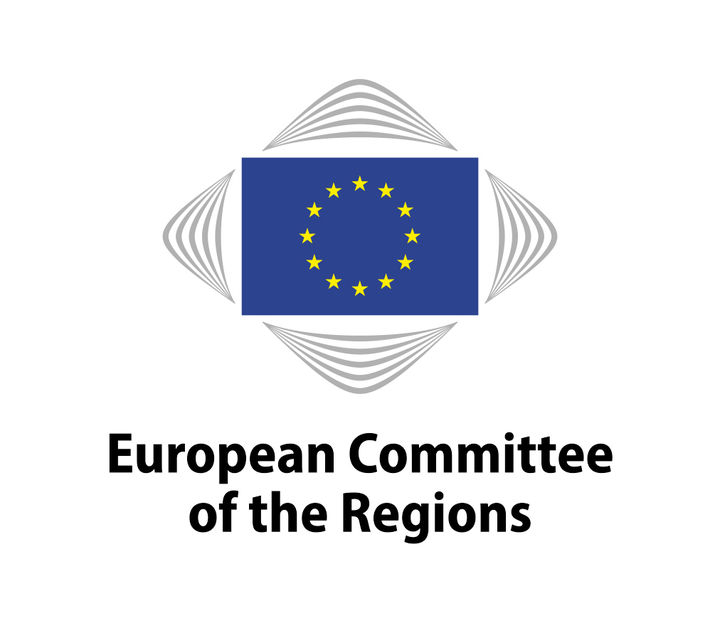 Homepage CASE
Homepage CASE
Selected values

Repercussions of the agri-food crisis at the local and regional levels
-
Date:
18 Jul 2022 - 30 Nov 2022
-
Project duration:
18.07.2022 - 30.11.2022
-

Delia Agostinelli
Economist
Delia Agostinelli is a Junior Economist at CASE. Graduated cum laude in Economics and Economic Policy at the University of Bologna with a thesis entitled “Impact of skilled migration on human capital formation and growth performance of source countries“. At CASE, Delia is involved in projects related to green economy, energy policies as well as … <a href="https://case.dev10.pro/project/repercussions-of-the-agri-food-crisis-at-the-local-and-regional-levels/">Continued</a>
Projects from this author:
-
How to eradicate skills poverty among the most vulnerable?
In a context of changing labour market needs due to the green and digital transitions and the still gaping skill divides across society, the European Commission proposes a number of actions ‘to give a fresh impetus to lifelong learning’. This includes ‘Promoting increased, and more effective and inclusive investment in training and upskilling to harness … Continued
-
Mapping of EU Member State Legal Pathways for Labour Migration and Mobility (Phase II)
The Migration Partnership Facility (MPF) is an EU-funded programme that is implemented by ICMPD. The MPF supports the preparation and implementation of partnership initiatives supporting more effective migration management and dialogue by providing targeted, flexible and tailor-made assistance (mostly through grants) to the EU’s priority countries covered by various funding instruments included under the MPF. … Continued
-
E-services for citizens at local and regional level in EaP countries
The study commissioned to CASE by the Committee of the Regions and entitled “E-services for citizens at local and regional level in EaP countries” is meant to provide facts and figures, background information, and preliminary analysis on the electronic (digital) administrative and information services that the local authorities in selected Eastern Partnership (EaP) countries – … Continued
-
How to eradicate skills poverty among the most vulnerable?
-

Izabela Marcinkowska
Labor market, social policy, and employment director
Dr. Marcinkowska's areas of expertise include the labor market, social policy, and employment. As President of the Management Board, Dr. Marcinkowska is responsible for managing all research and projects in the areas of demography, labor, and social policy, overseeing CASE’s financial administration, and spearheading new business development activities. Dr. Marcinkowska has been cooperating with CASE since 2005, and has participated in numerous Polish and international technical assistance and research projects, including the multi-year MOPACT (Mobilizing the Potential of Active Ageing in Europe) Project, funded by the European Commission’s DG on Research and Innovation; NEUJOBS – Employment 2025: How will multiple transitions affect the European labor market, also funded by the European Commission’s DG on Research and Innovation; the Study on the effects and incidence of labor taxation, funded by the European Commission’s DG on Taxation and Customs Union, and Assessing Needs of Care in European Nations (ANCIEN), funded by the European Commission’s Health Cooperation Program. Dr. Marcinkowska obtained her PhD in Economic Science on Informal Employment from the University of Turin. She holds an MA in Economics from the University of Warsaw and an MA in Economics from CORIPE Piemonte in Turin. She has published extensively in the fields of labor economics, social policy, and health economics.
Projects from this author:
- Study on ‘EU school scheme from the regional and local perspective: enhancing impact, alignment, and integration into food strategies’
-
Methodologies for Teamworking in Eco-Outwards Research (METEOR)
Key words: doctoral education, transversal skills, sustainable development, On December 1st, the METEOR project started, funded under the Horizon program. The project, led by CASE and implemented with the participation of 11 other partner organizations and one associated partner from Brazil, will last 36 months. The overall aim of METEOR is to improve the transversal skills of current postgraduates and early career researchers, with consequent benefits to research ecosystems, in line with Open Science and Responsible Research and Innovation (RRI) and focused on the UN Sustainable Development Goals. METEOR emphasizes the capacity to collaborate, work in groups and to develop international transdisciplinary projects oriented towards societal challenges and doctoral employment opportunities. METEOR has 6 specific objectives (SO) corresponding to its work package structure: SO1: Effective Management (WP1). SO2: Collect, analyse and report evidence supporting the need for an innovative doctoral training program (WP2). SO3: Develop a comprehensive transversal skills training program comprising a suite of 10 online training resources, using participatory methodologies co-created with the PhDs, ECRs, institutions and researchers, to enhance the skills specified in the Call (WP3). SO4: Implement the resources from WP3 and related activities in online and in-person delivery mode, with online and F2F events, and Peer Mentoring Groups consisting of 4-6 researchers collaborating for 15 months, with a target of 300 +/- individuals in 50 groups, preparing 50+ proposals based on UN SDGs and focused on impact (WP4). SO5: Create policy and exploitation routes for increasing the scope of doctoral training at local and national levels (WP5). SO6: Communicate and disseminate METEOR activities and results to a wider audience and ensure project’s continuity beyond the funded period (WP6). METEOR activities will benefit doctoral candidates (employment prospects/ earnings), institutions (recruiting PhD candidates, better supervision, more impactful research), industry/public sector (employees with high level research and transversal skills) and society generally (more research focused on challenges). Grant: This project has received funding from Horizon Europe – the Framework Programme for Research and Innovation (2021-2027) call: HORIZON-CL2-2024-TRANSFORMATIONS-01 under grant agreement No 101178320 — METEOR. Project leader: CASE - CENTRUM ANALIZ SPOLECZNO- EKONOMICZNYCH- FUNDACJA NAUKOWA (CASE) Partners: NORD UNIVERSITET (NU), THE OPEN UNIVERSITY (OU), UNIVERSITA DEGLI STUDI DI VERONA, (UNIVR), EUROPEAN UNIVERSITY - CYPRUS LTD (EUC), JYVASKYLAN YLIOPISTO (JYU), KASTAMONU UNIVERSITESI (KU), ILIA STATE UNIVERSITY (ISU), CEEI BURGOS (ES), HACETTEPE UNIVERSITESI (HU), ROSKILDE UNIVERSITET (RUC), SYNYO GmbH (SYNYO), State University of Bahia (UNEB, associated partner)
-
Tourism and Rural Development
The study commissioned to CASE by the Committee of the Regions and entitled “Tourism and Rural Development” is to provide a brief analysis of the main barriers and enablers to tourism as part of rural development in the European Union from the perspective of subnational governments. The study also will pay attention to identify supporting … Continued
-

Jan Bazyli Klakla
Dr. Jan Bazyli Klakla holds doctorates in law and sociology from the Jagiellonian University in Krakow, where he also completed studies in law, sociology, and cultural studies, alongside postgraduate studies in international migration at the University of Warsaw. He is currently a Director of Migration, Social Policy, and Development Cooperation at CASE – Center for Social and Economic Research in Warsaw, and a post-doctoral researcher at the Center for Legal Education and Social Theory at the University of Wrocław. Dr. Klakla has been involved in and has led numerous national and European research projects, including those funded by Horizon Europe, Norway Grants, and Polish National Science Center. His work also includes providing consulting and expert services to key European institutions such as the Committee of the Regions, the European Economic and Social Committee, and CEDEFOP (European Centre for the Development of Vocational Training). He has served as an expert in the “Safe Krakow - Security Strategy for Krakow” program. Dr. Klakla is the editor of Law and Culture. Reconceptualization and Case Studies (Springer Nature, 2021) and the author of Law and Acculturation. Conceptualisation and Empirical Case Study: Slavic Migrants in Poland (Palgrave Macmillan, 2024) and Studying in Times of Crisis. Acculturation and Adaptation of Ukrainian Students at Kraków Higher Education Institutions amidst the COVID-19 Pandemic and Russia's Aggression against Ukraine (Brill, 2025). In recognition of his scholarly contributions, he was awarded first prize in the competition of the Association of the Philosophy of Law and Social Philosophy (IVR) – Polish Section for the best doctoral dissertation in the theory and philosophy of law. His research interests span migration, sociology of law, educational research, public policy analysis, customary law, and the methodology of social sciences.
Projects from this author:
-
Wealth taxation, including net-wealth, capital and exit taxes
The study aims to provide further information regarding the uptake and economic consequences of introducing wealth-related taxes. The purpose of the study is to shed further light firstly into recurrent wealth related taxes by (i) reviewing the conditions for the implementation of a net wealth tax and its consequences, to provide a detailed literature review on recurrent capital taxes in the EU and analyse their economic consequences; and secondly (ii) to provide an overview of existing non-recurrent wealth related taxes, namely, by providing an overview of capital taxes, inheritance and gift taxes and the existing exit tax provisions in the field of personal income taxation (including relevant statutory references), and how these interrelate with and complement the legal framework of taxing net wealth and capital gains. The study builds on previous research work mapping wealth taxes and estimating the consequences of their introduction. It is structured along two parts comprised of two and three workstreams respectively, related to the topics outlined above. Part 1 – Recurrent taxation, Workstream 1 – Net wealth taxes Part 1 – Recurrent taxation, Workstream 2 – Capital taxes Part 2 – Non-recurrent taxation, Workstream 3 – Capital taxes Part 2 – Non-recurrent taxation, Workstream 4 – Inheritance and gift taxes Part 2 – Non-recurrent taxation, Workstream 5 – Exit taxes
-
Methodologies for Teamworking in Eco-Outwards Research (METEOR)
Key words: doctoral education, transversal skills, sustainable development, On December 1st, the METEOR project started, funded under the Horizon program. The project, led by CASE and implemented with the participation of 11 other partner organizations and one associated partner from Brazil, will last 36 months. The overall aim of METEOR is to improve the transversal skills of current postgraduates and early career researchers, with consequent benefits to research ecosystems, in line with Open Science and Responsible Research and Innovation (RRI) and focused on the UN Sustainable Development Goals. METEOR emphasizes the capacity to collaborate, work in groups and to develop international transdisciplinary projects oriented towards societal challenges and doctoral employment opportunities. METEOR has 6 specific objectives (SO) corresponding to its work package structure: SO1: Effective Management (WP1). SO2: Collect, analyse and report evidence supporting the need for an innovative doctoral training program (WP2). SO3: Develop a comprehensive transversal skills training program comprising a suite of 10 online training resources, using participatory methodologies co-created with the PhDs, ECRs, institutions and researchers, to enhance the skills specified in the Call (WP3). SO4: Implement the resources from WP3 and related activities in online and in-person delivery mode, with online and F2F events, and Peer Mentoring Groups consisting of 4-6 researchers collaborating for 15 months, with a target of 300 +/- individuals in 50 groups, preparing 50+ proposals based on UN SDGs and focused on impact (WP4). SO5: Create policy and exploitation routes for increasing the scope of doctoral training at local and national levels (WP5). SO6: Communicate and disseminate METEOR activities and results to a wider audience and ensure project’s continuity beyond the funded period (WP6). METEOR activities will benefit doctoral candidates (employment prospects/ earnings), institutions (recruiting PhD candidates, better supervision, more impactful research), industry/public sector (employees with high level research and transversal skills) and society generally (more research focused on challenges). Grant: This project has received funding from Horizon Europe – the Framework Programme for Research and Innovation (2021-2027) call: HORIZON-CL2-2024-TRANSFORMATIONS-01 under grant agreement No 101178320 — METEOR. Project leader: CASE - CENTRUM ANALIZ SPOLECZNO- EKONOMICZNYCH- FUNDACJA NAUKOWA (CASE) Partners: NORD UNIVERSITET (NU), THE OPEN UNIVERSITY (OU), UNIVERSITA DEGLI STUDI DI VERONA, (UNIVR), EUROPEAN UNIVERSITY - CYPRUS LTD (EUC), JYVASKYLAN YLIOPISTO (JYU), KASTAMONU UNIVERSITESI (KU), ILIA STATE UNIVERSITY (ISU), CEEI BURGOS (ES), HACETTEPE UNIVERSITESI (HU), ROSKILDE UNIVERSITET (RUC), SYNYO GmbH (SYNYO), State University of Bahia (UNEB, associated partner)
-
Mapping of EU Member State Legal Pathways for Labour Migration and Mobility (Phase II)
The Migration Partnership Facility (MPF) is an EU-funded programme that is implemented by ICMPD. The MPF supports the preparation and implementation of partnership initiatives supporting more effective migration management and dialogue by providing targeted, flexible and tailor-made assistance (mostly through grants) to the EU’s priority countries covered by various funding instruments included under the MPF. … Continued
-
Wealth taxation, including net-wealth, capital and exit taxes
Related projects
Thanks for joining us!
You're now part of a community that values [your newsletter's focus]. Get ready to stay informed, inspired, and engaged with our carefully curated content.
